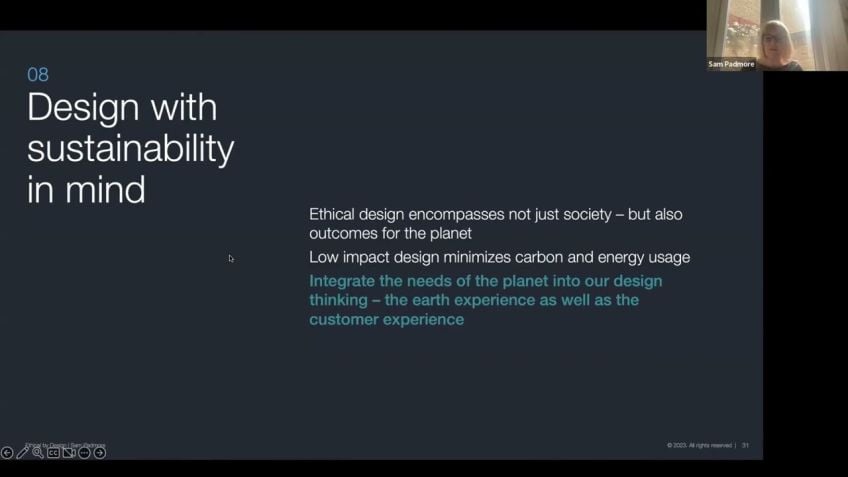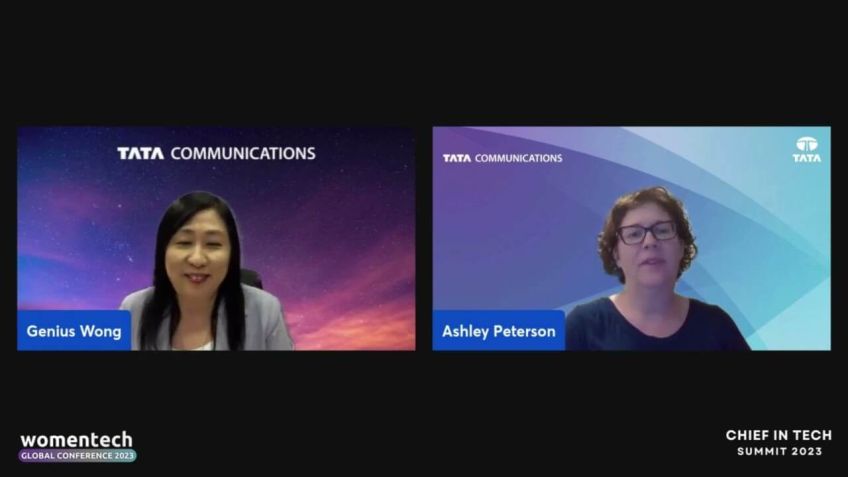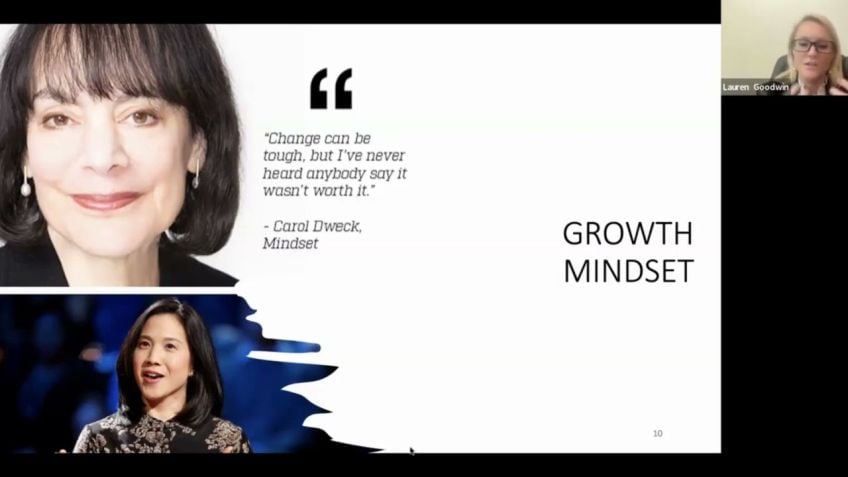The Moral Considerations of Technology: Looking at the Whole Picture
Moral Considerations in Technology Development
Hello, my name is Sherry Kal, the CEO of Victims Voice. Today I present to you the moral considerations for tech entrepreneurs while developing technologies, making improvements while caring about the environment the technology is designed for.
Why Do We Develop Technology?
As entrepreneurs, we aim to disrupt the norm. When you come up with an idea, it may create an initial splash, but soon ripple effects start to show up. These ripple effects may end up harming the very environment even if the initial intention was to improve. Here we will consider a scenario for a documentation tool intended to help victims of domestic violence.
Understanding the Environment
While creating a technology, it's essential to understand the environment you are stepping into using due diligence and research. Domestic violence is a global problem but for our understanding, we'll consider examples based in the United States.
Let's consider some statistics: One in five women and one in seven men report experiencing severe physical violence from an intimate partner. However, proving this behavior is difficult and nearly 80% of reported cases in 2017 were dismissed due to lack of evidence.
Upon hearing these facts, it’s natural to want to develop a tool to help victims document their experiences.
Designing Technology for Victims of Abuse
Here are some factors to consider when designing such a tool:
- Technology: Choose between native apps or web-based ones.
- Legal Security and Privacy: Understand laws and maintain user privacy.
- Compliance: Ensure your service complies with new privacy laws like California’s CCPA and Virginia’s new privacy law.
- Evidence: Make sure the data generated can be legally admissible in a court of law
- Access & Community: Your technology should be accessible to all and consider various factors like age, gender, identity, etc.
Understanding Business Funding
Figure out the business entity you are and how to make money to keep your business afloat. Nonprofits can access resources and grant funding that for-profit businesses cannot. For-profits have different mission driving goals and business decisions.
Summary
In conclusion, evaluate the impact you plan to create before you dive in to disrupt your space. Understand your intended users. Make sure all your decisions align with your moral compass and aim towards your North Star.
To make it interactive, post one thing you learned from my session today using #MoralConsiderationsInTech and tag us as shown above. We will select two random winners for free signed books.
Thank you for your time and feel free to ask any question you might have!
Video Transcription
Well, thank you very much. I want to thank all of you for choosing my session. The moral considerations of technology. My name is Sherry Kal and I am the CEO of Victims Voice.If you click below the screen, you'll see like a little v um you can expand and read my bio information later, but that's not really what's important here. So let's get started. Shall we? Why do we build technology? We as entrepreneurs see calm water status quo where the mentality of that's the way it's always been exists and we're here to disrupt the norm when you fathom an idea, it will make a big splash, but then the ripples start to happen. And if you're not careful to consider the peripheral effects, you could end up harming the very environment you intended to improve. We're going to explore the scenario of ripple effects through the lens of a documentation tool that might be built to help victims of domestic violence.
While the industry may be different than yours, the principles are the same. You'll need to do some homework and some due diligence to get your technology right, and aligned with a moral purpose to set the stage. I'm gonna share some information about my industry. We all know domestic violence is a huge global issue. But for the purpose of this presentation, we'll be referring to examples and technologies based in the United States. Let's start with some basic statistics across their lifetime. One in five women and one in seven men report experiencing severe physical violence from an intimate partner. But all that violence starts off as a slow and gradual process of emotional abuse and coercive control behavior is nearly impossible to prove much less having court worthy evidence to substantiate the victims claims in the National Domestic Violence Prosecution Best Practices guide.
In 2017, prosecutors throughout the US found that 80% of reported cases were dismissed due in large part to a lack of evidence. When you hear this type of information, it's only natural to want help. And if you're an entrepreneur or a techie, the logical idea is to build a tool that allows victims to document their experiences. If you are a survivor of domestic violence as I am, you might base the needs of the tech off your own lived experiences. So we set off with an initial idea and throw that rock into the water to make the big splash. Logically, of course, this tool will be an app. So people use it on their mobile devices. But what are all the things you should consider before you write your first line of code. Well, let's take a look, technology, legal security and privacy, compliance, evidence, access, community and business funding. We'll touch on these to give an idea of how deep and wide you should be thinking about your business, your users, your user environment and the morality of your technology. Let's start with the attack. Do you build it as a native app or a web based app? Well, native apps give you great distribution but when your users are being tracked and monitored, do you really want an icon on your phone? And what happens if your abuser smashes your phone?
If you're planning to generate any sort of revenue and you're planning on using Apple's App store, be sure to calculate the fact that 30% of your revenue will go to Apple in the first year and any renewals will cost you 15%. Web apps are good, but you have to have access to a network, either cellular or Wi Fi while it has less ability to be accessed um accidentally discovered through an app store. It is device agnostic, which means anyone can use it from any device anywhere. It also means one set of code and less from a cost perspective on the dev side for both the builds and the updates. So what type of information are you suggesting users include? If you don't understand the laws, you can actually put a user in harm's way, the logical response from victims and survivors alike is record. What's going on recording a conversation, abusive or not, is not legal without consent in every state. In fact, in some states it's a felony and you will go to jail for recording audio or video of your abuser without their permission in the space of domestic violence. Really any space security is super important. Make sure that not only are your systems secure but your internal processes as well. Human errors cost companies more than technical ones in most cases when you build an app, think about security for the user. How are they accessing it?
Are they using a method where their abuser might easily be able to get in? Are you gonna set up two factor authentication to secure it in doing so? If their devices are being tracked won't a text message or an email alert, their abuser about the app and that they're documenting, potentially putting them in further danger. And what about privacy other than the intended purpose? What data are you collecting? Where are you storing it?
And how are you sharing all or part of it within your organization such as through an operational CRM or customer relationship management system? What about your customer service portal? What if one of the users reaches out to support and happens to know one of their support reps?
Does that breach privacy? How will you ensure that doesn't happen? Are you sharing all or part of your data with outside entities as we heard in one of the earlier sessions. If so, are you fully disclosing this? Are you compliant with the new privacy laws such as California's C CPA and Virginia's new privacy law? Did you know that there are 14 other states with privacy legislation in the pipeline? And if your system stores any data on European citizens, you must be GDPR compliant, whether you do business there or not, what regulations govern the space that you're in. Don't assume that because you're a small early stage start up that they don't matter. They do from the start, build your tech and your company with compliance in mind and in practice. So let's go back to purpose. If the primary purpose is to document and the expectation is that the documentation can be used to prove a crime, then it would be safe to assume that it needs to be legally admissible or you're wasting everyone's time and are potentially re victimizing the user when they find out it can't be used in their court hearings because you as a developer can't prove chain of custody.
So what the heck is chain of custody? It says that you can prove and certify to a court that the data from the time it goes into the system until the time it goes out and everywhere in between has not been tampered with altered or deleted in any way, shape or form. And you can show all the systems and people that may have had access to that data. Make sure if you're going to market this to anyone, you make it available to everyone. In addition to the obvious shown here, consider how things like age, gender, identity, legal status, culture, and more may affect how users interact with the technology and whether they feel heard and their needs validated. Now, this 1 may or may not be obvious at first, but do your homework on persona discovery, you might find information not considered by others in your space. For example, most pet owners will not leave an abusive relationship if they are afraid to leave their pet, especially if harming their pet is being used to intimidate or threaten them. In addition, all 50 states in the US have animal cruelty laws on the books.
So use that to your advantage and help them document if the pet is part of the abusive equation. And now we've come to business funding, consider what type of entity you will be and how you'll make money. You cannot do anyone any good if you go out of business. So you'll need to figure this piece out sooner than later. Nonprofits work really hard and have to fundraise their entire existence, but they do have access to resources and grant funding that for profits. Do not. If you're a social impact company, consider whether it will help your brand to be a P BC or public benefits corporation. If you're a for profit that raises capital. Understand that your business decisions will be driven by your shareholders, the investors and the board and it may not be as mission driven as you're comfortable with. If bootstrap is your choice, just be prepared for a whole lot of ramen noodles for a long time because because it is a slow and arduous journey to get to a profitable state. The advantage is you can keep better control over mission and culture. In summary, make sure the ripples that you create when you make that big splash to disrupt your space are ones where you've evaluated the outcomes with intention. Do the work, know everything about those you intend to have as users and clients and make sure your decisions.
All of them are done with your moral compass pointing towards your North Star. So you don't lose your way before I go. I did promise to give away two author, signed books. So post on social. One thing you learned in my session today using the above hashtag and tag us as shown and we'll select two random winners that will announce on our social media platforms. And by the way, I'm happy to mail them to you regardless of where in the world that you might be. Thank you so much for your time and enjoy the rest of the conference and please, by all means, if you have any questions or wanna talk about anything further, all my contact information is shown on the screen. Thank you. So I see here a comment need to know more about California's privacy laws. Yes, they are not quite as strict as GDPR. Um but they are pretty strict, they do have some loopholes for uh nonprofit status. Um They also have some loopholes for certain types of data that you might be holding and for reasons why the data may be held. So if it's being held for legal reasons, um there's an outcome that's gonna come from the data that you're holding. Basically.
The general rule on data privacy laws is don't hold information that you don't need and always be transparent as to what the data is. Um oh, the other state is Virginia but there are, I know Texas is rolling theirs through the legislation pretty quickly. Um And I'm happy to share with anyone the uh all the states that are pending through right now. I know New Jersey is one as well. So uh only store what you need always be transparent, allow for people to opt out be specific about the opt ins and you have to be able to show them where the data is, what data you have on them and allow them the opportunity to review edit or delete the information that you hold on them.
So those are, are, are the really big buckets. Um How can we record the abuse before getting permission from an abuser? So something like Victims voice app, we don't actually allow for audio or video. We allow for images which is absolutely admissible. We teach people ways around the audio and video. But if you're in a state where it is not legal to record another person, don't record another person. Um because you could potentially end up going to jail for it or being fined and that's not what we want. Yeah. So gosh, uh we ended a little early. So any other questions? I think the biggest thing with this really is to fully understand the environment that your technology is serving. Understand the users, understand the partners, the industry, uh understand any laws that may affect it.
Um But just really think about all those ripples that happen when you drop something in, we think about something like Facebook, right? Facebook automatically shares things that have happened in the past. But what if you don't want to see those things that happened in the past?
What if like in the case of domestic violence, those things are very triggering. So if you build a community where you're going to allow people to share things, allow them the ability to not have things come at them if they could be triggering, that's an example. Any other questions? Great. Well, I hope you all will use social media and I uh can't wait to give away these books. These are great books by great authors and thank you so much for your time. I'll let you out a little early.





